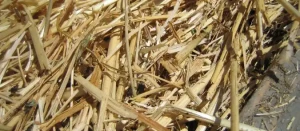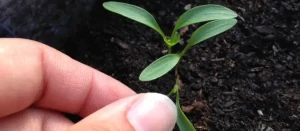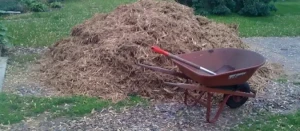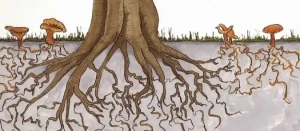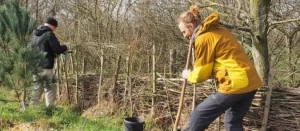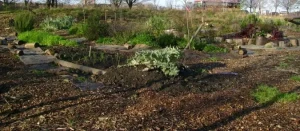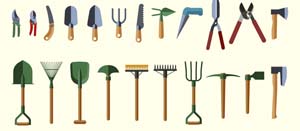SEARCH RESULTS > ARTICLES > surface
The no-dig method, also known as no-till gardening, is a sustainable and organic approach to cultivating vegetables without disturbing the soil structure. This gardening technique has gained popularity among gardeners due to its numerous benefits for soil health, plant growth, and overall garden productivity. Unlike traditional gardening methods that involve tilling, digging, and turning the soil, the no-dig method emphasizes minimal soil disturbance. Instead of breaking up the soil, gardeners layer organic materials on top of the ground to create nutrient-rich soil beds where plants can thrive. By implementing the no-dig method, gardeners can improve soil structure, enhance soil fertility, and promote beneficial soil organisms such as earthworms and microorganisms. Additionally, this approach helps to conserve water, reduce weed growth, and minimize soil erosion. Learn More
Starting seeds indoors is a rewarding way to kickstart your spring garden. By sowing seeds indoors, you gain greater control over the germination process, extend your growing season, and ensure stronger, healthier plants when it's time to transplant them outdoors. Whether you're a seasoned gardener or just starting out, this comprehensive guide will walk you through the steps to successfully start seeds indoors and set the stage for a bountiful garden. Learn More
If the chill of winter begins to wane and the first signs of spring emerge, gardeners eagerly anticipate the opportunity to revitalize their garden beds. Transitioning from winter to spring requires careful attention to cleaning and preparing garden beds to ensure a successful growing season ahead. Learn More
Mulching is a fundamental practice in gardening that offers a multitude of benefits to both plants and soil. Whether you're a seasoned gardener or just starting out, understanding the principles and techniques of mulching can greatly enhance the health and beauty of your garden. Learn More
Gardening enthusiasts are always on the lookout for ways to enhance the health and vitality of their plants. One often overlooked but crucial player in the world beneath the soil is Mycorrhizal fungi. These remarkable fungi form a symbiotic relationship with plants, contributing significantly to soil health and overall plant well-being. Learn More
Edible forest gardens, rooted in the principles of permaculture, offer a sustainable and regenerative approach to gardening that mimics the structure and function of natural ecosystems. These gardens are designed to be not only beautiful but also productive, providing a diverse range of edible plants while enhancing ecological balance. In this article, we explore the concept of edible forest gardens and delve into the permaculture practices that make them flourish. Learn More
In the quiet depths of garden soil, a hidden symphony unfolds as plants engage in intricate relationships with microorganisms. Beyond the visible blooms and verdant foliage lies a complex network of interactions that profoundly shape the health and fertility of the soil. In this exploration, we delve into the nuanced world of plant-microbe relationships and their transformative impact on garden soil. Learn More
Proper maintenance of your garden tools is essential to ensure their longevity, effectiveness, and your safety while using them. Here are some tips on how to maintain your garden tools. Learn More
